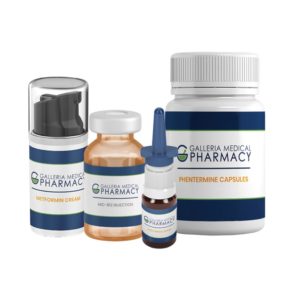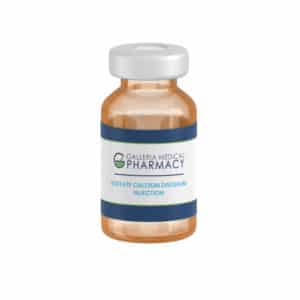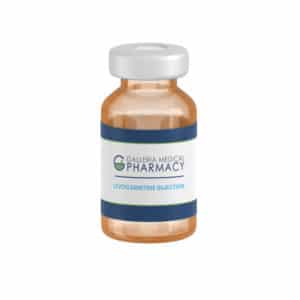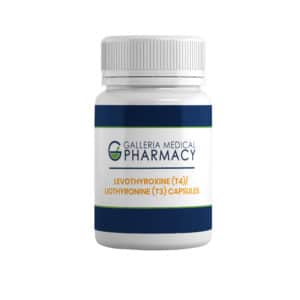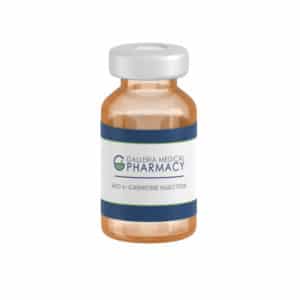Methylcobalamin Injection
- Home
- /
- Products
- /
- IV Therapy
- /
- Methylcobalamin Injection
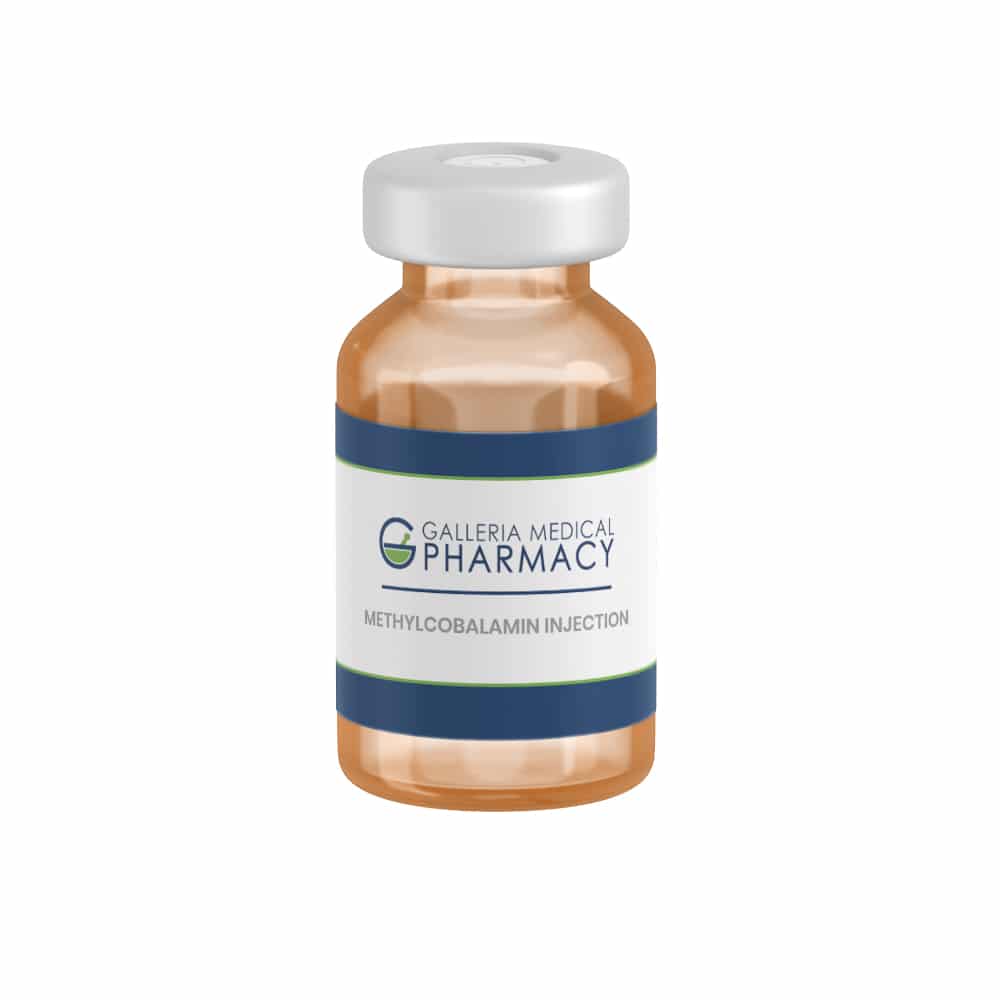
Overview
Cobalamin is another name for vitamin B12. Methylcobalamin is the methylated form of vitamin B12. Vitamin B12 is necessary for creating cellular energy as well as for making DNA. It is an essential vitamin that must be obtained from food or supplements. Dietary sources of vitamin B12 include meat, fish, milk, eggs, cheese, etc. Interestingly, the overall bioavailability of each form of supplemental B12 may be influenced by many factors such as gastrointestinal pathologies, age, and genetics.
Vitamin B12 plays a role in various processes in the body including:
- The metabolism of fats and carbohydrates.
- The production of protein.
- Growth, cell reproduction, hematopoiesis, nucleoprotein and myelin synthesis.
- The production of methionine synthase and L-methymalonyl-CoA mutase.
- The synthesis of methionine from homocysteine.
- The regeneration of tetrahydrofolate from 5-methyltetrahydrofolate.1, 2
While vitamin B12 deficiency is rare, it can attribute to anemia, intestinal problems, and nerve damage. The elderly, vegetarians, and those with malabsorption issues are more likely to become deficient.
Methylcobalamin vs. Cyanocobalamin
Researchers have found that if vitamin B12 is prescribed, methylcobalamin may be the preferable form over cyanocobalamin in patients with renal impairment.3 Furthermore, it has been said that cyanocobalamin should not be used in smokers as it has a cyanide moiety and smokers have an excess of thiocyanate in their blood, which can disturb the metabolism of cyanocobalamin and increase its excretion.4 Moreover, cyanocobalamin is a synthetic B12 form that occurs only in trace amounts in humans from cyanide intake or smoking, and methylcobalamin, adenosylcobalamin, and hydroxycobalamin are natural forms of vitamin B12.5 Holistic health practitioners will often opt for a natural form of a therapy over a synthetic form of therapy.
Indications
Aside from vitamin B12 deficiency, methenyltetrahydrofolate synthetase deficiency disorder and autism are two common reasons why a healthcare provider may prescribe methylcobalamin to a patient. Additionally, methylcobalamin may be a viable treatment option for pain, diabetic neuropathy, nerve degeneration, certain malignant tumors, chronic progressive multiple sclerosis, amyotrophic lateral sclerosis, etc.6-16
How Supplied
This preparation is not commercially available at this time. Patients that would benefit from its administration may be prescribed Methylcobalamin Injection as determined by a health care provider. The most popular formulation compounded at Galleria Medical Pharmacy is Methylcobalamin 1 mg/mL Injectable Solution, though other strengths and formulations may be available upon request.
For best results, Methylcobalamin Injection should be administered at regular intervals under professional supervision by a healthcare practitioner. As per FDA regulations, compounds prepared by a pharmacy are not intended for office use (e.g., office stock of a drug that is administered to multiple patients). As such, this preparation requires a prescription, which is then administered to the specified patient by a healthcare practitioner at their practice.
Storage
Store this medication at 36°F to 46°F (2°C to 8°C) and away from heat, moisture and light. Keep all medicine out of the reach of children. Throw away any unused medicine after the beyond use date. Do not flush unused medications or pour down a sink or drain.
Reference
- Vasavada, A., Sanghavi, D., “Cyanocobalamin”, StatPearl. Available: https://www.ncbi.nlm.nih.gov/books/NBK555964/#:~:text=Mechanism%20of%20Action&text=Tissues%20absorb%20vitamin%20B12%20by,particularly%20in%20erythroid%20progenitor%20cells.
- “Vitamin B12 Fact Sheet for Health Professionals”, National Institutes of Health. Available: https://ods.od.nih.gov/factsheets/VitaminB12-HealthProfessional/
- J David Spence. Metabolic vitamin B12 deficiency: a missed opportunity to prevent dementia and stroke. Nutr Res. 2016 Feb;36(2):109-16.
- Linnell JC, Smith AD, Smith CL, Wilson J, Matthews DM . Effects of smoking on metabolism and excretion of vitamin B12. Br Med J1968; 2: 215–216.
- Christina Paul, David M. Brady. Comparative Bioavailability and Utilization of Particular Forms of B12Supplements With Potential to Mitigate B12-related Genetic Polymorphisms. Integr Med (Encinitas). 2017 Feb; 16(1): 42–49.
- Kim H-I, Hyung WJ, Song KJ, Choi SH, Kim C-B, Noh SH. Oral vitamin B12 replacement: an effective treatment for vitamin B12 deficiency after total gastrectomy in gastric cancer patients. Ann Surg Oncol. 2011;18:3711-3717.
- Rodan LH, Qi W, Ducker GS, et al. 5,10-methenyltetrahydrofolate synthetase deficiency causes a neurometabolic disorder associated with microcephaly, epilepsy, and cerebral hypomyelination. Mol Genet Metab. 2018;125(1-2):118-126.
- RE Frye. Effectiveness of methylcobalamin and folinic Acid treatment on adaptive behavior in children with autistic disorder is related to glutathione redox status. Autism Treatment. 2013;2013:609705.
- Hendren RL, James SJ, Widjaja F, Lawton B, Rosenblatt A, Bent S. Randomized, Placebo-Controlled Trial of Methyl B12 for Children with Autism. J Child Adolesc Psychopharmacol. 2016 Nov;26(9):774-783.
- James, S. Melnyk, G. Fuchs et al. Efficacy of methylcobalamin and folinic acid treatment on glutathione redox status in children with autism. American Journal of Clinical Nutrition, vol. 89, no. 1, pp. 425–430, 2009.
- Zhang M, Han W, Hu S, Xu H. Methylcobalamin: a potential vitamin of pain killer. Neural Plast. 2013;2013:424651.
- Nishizawa Y, et al. Effects of methylcobalamin on the proliferation of androgen-sensitive or estrogen-sensitive malignant cells in culture and in vivo. Int J Vitam Nutr Res. 1997;67(3):164-70.
- Kira J, Tobimatsu S, Goto I. Vitamin B12 metabolism and massive-dose methyl vitamin B12 therapy in Japanese patients with multiple sclerosis. Intern Med. 1994;33(2):82-86.
- Kaji R, Imai T, Iwasaki Y, et al. Ultra-high-dose methylcobalamin in amyotrophic lateral sclerosis: a long-term phase II/III randomised controlled study. J Neurol Neurosurg Psychiatry. 2019;0:1-7. 46.
- Kaji R, Kodama M, Imamura A, et al. Effect of ultra-high dose methylcobalamin on compound muscle action potentials in amyotrophic lateral sclerosis: a double-blind controlled study. Muscle Nerve. 1998;21:1775-1778.
- Mizukoshi A, Ito H, Oda M, Hiji M, Izumi Y, Kaji R. Short term effect of ultra-high-dose methylcobalamin in ALS: evaluation with neurophysiological index. Clin Neurophysiol. 2011;122(8):e10.
Compounding Pharmacy Statement
This preparation is compounded with drug components whose suppliers are registered with the FDA. While Galleria Medical Pharmacy adheres to USP <797> guidelines and applicable state and federal regulations to meet the required quality standards, the statements made regarding this preparation have not been evaluated by the FDA for safety or clinical effectiveness. As such, this preparation is not intended to diagnose, treat, cure, or prevent any disease. For inquiries concerning this preparation, please contact (504) 267-9876.
